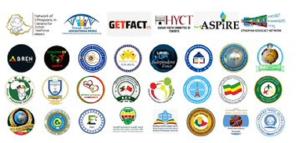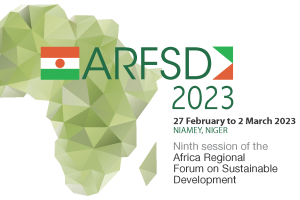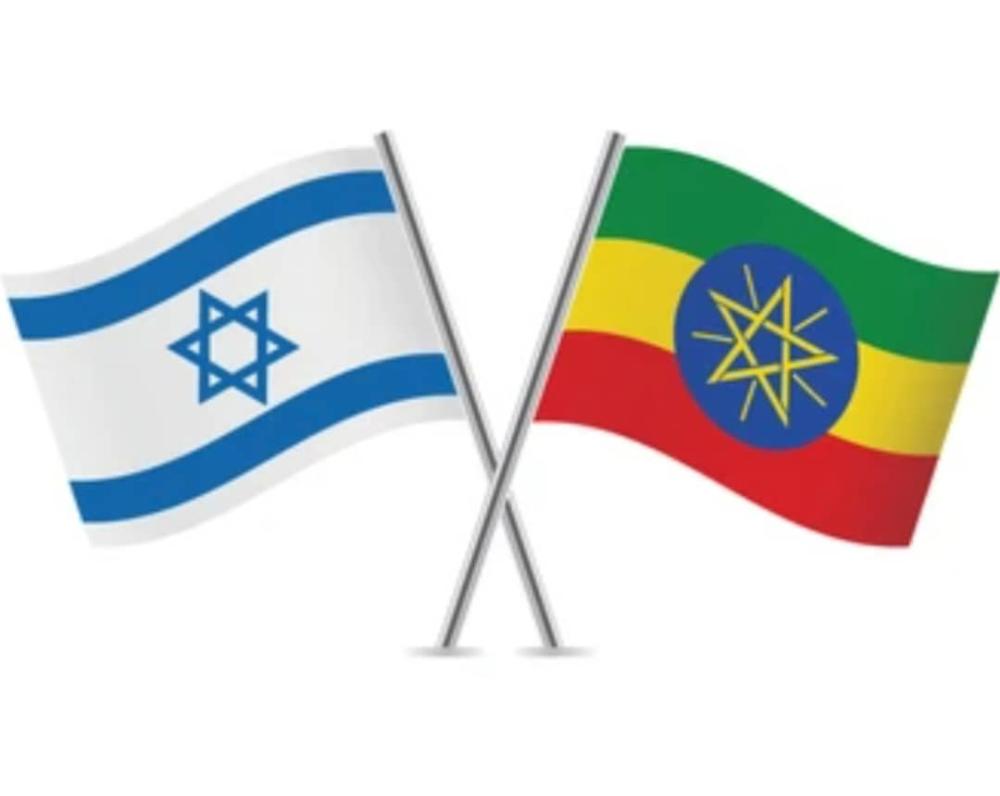ENA - ENA English
Headlines
Adwa Triumph Stands as Timeless Beacon of Strength and Unity: ENDF Chief of Staff
Mar 2, 2026 145
Addis Ababa, March 2, 2026 (ENA) —Ethiopian National Defense Force (ENDF) Chief of Staff, Field Marshal Berhanu Jula, described the Battle of Adwa as an enduring source of moral strength and resilience that continues to inspire generations. The 130th anniversary of the Victory of Adwa is being commemorated today under the theme ‘Glorious Past, Radiant Horizon,’ marking a monumental chapter in both Ethiopian and African history. The Victory of Adwa remains a defining chapter in Ethiopian and African history. On March 1, 1896, Ethiopian forces under Emperor Menelik II decisively defeated the Italian army at the Battle of Adwa. The triumph safeguarded Ethiopia’s sovereignty and sent a resounding message of resistance against colonialism across the African continent. Since then, it has stood as a symbol of national pride, courage, and the unyielding spirit of independence, inspiring generations both within Ethiopia and across the African diaspora. Speaking at the Adwa Memorial Museum, Field Marshal Berhanu emphasized the historical significance of the battle, highlighting the role of unity and bravery in overcoming colonial forces and protecting Ethiopia’s sovereignty. “The Victory of Adwa is a profound story of struggle, reflecting the broader fight of black peoples against oppression,” he said. He further added that this powerful day shattered the notion that black people are incapable of shaping history. He recalled the extraordinary clash on the battlefield, where Ethiopian warriors, equipped largely with traditional weapons, confronted an enemy armed with advanced artillery. “The resilience and determination of Ethiopian fighters became their most formidable weapon, illustrating the timeless value of courage in defending freedom,” he said. Reflecting on the colonial response, the chief of staff noted that Italian forces, unwilling to accept defeat, returned forty years later with modern warfare, including aerial bombardment. Despite these challenges, Ethiopian veterans adapted through guerrilla tactics, ultimately concluding the second colonial war and reinforcing Ethiopia’s independence. Highlighting the contemporary relevance of Adwa’s legacy, Field Marshal Berhanu said it continues to inspire the ENDF, guiding their commitment to safeguarding national interests and heritage. He also called for unity and solidarity as essential for advancing national ambitions, including projects like the Grand Ethiopian Renaissance Dam (GERD) and efforts to secure access to a sea outlet. He cautioned against actions that could undermine Ethiopia’s national interests, urging vigilance to protect the country’s agenda from external influences. “The memory of Adwa victory serves as a guiding light,” he concluded, “ensuring that the spirit of resilience continues to thrive across generations.”
Adwa Inspires Unity and Purpose for Ethiopia’s Prosperity, Says Mayor Adanech
Mar 2, 2026 236
Addis Ababa, March 2, 2026 (ENA) —Addis Ababa Mayor Adanech Abiebie has urged Ethiopians to move beyond commemorating ancestral valor, calling on the current generation to embrace a renewed urgency in building a legacy of modern-day achievements. The Victory of Adwa, commemorated this year in its 130th anniversary, stands as a monumental chapter in both Ethiopian and African history. On March 1, 1896, Ethiopian forces under Emperor Menelik II delivered a decisive victory against the Italian army at the Battle of Adwa, a triumph that not only safeguarded Ethiopia’s sovereignty but also sent a powerful message of resistance against colonialism on the African continent. This victory has since been celebrated as a symbol of national pride, resilience, and the enduring spirit of independence that continues to inspire generations across Ethiopia and the wider African diaspora. Speaking at the occasion, held under the theme “Glorious Past, Radiant Horizon,” Mayor Adanech described the historic triumph as a beacon of independence and a monumental symbol of unity for all Black people and Africans. Reflecting on the occasion, she emphasized that the celebration is a solemn vow to transform the bravery of the past into tangible prosperity for Ethiopia’s future. "Today's Victory of Adwa is a grand history of heroism that serves as a pride for Black people, a lantern of freedom for Africans, and a symbol of unity and liberty," she said. "As we celebrate under the theme 'Glorious Past, Radiant Horizon,' we do so by learning from the heroism of the past and pledging ourselves to the future prosperity of our country." Mayor Adanech highlighted that the enduring lesson of Adwa is the necessity of standing together. Despite internal differences, she stressed that Ethiopians must remain united in defending national sovereignty and the dignity of citizenship. "The greatest thing Adwa taught us is that even if we have differences in our internal affairs, we must stand together without being divided when it comes to national sovereignty and the honor of our citizenship," she noted. She reminded the audience that the heroes of Adwa set aside differences to cement Ethiopia’s inviolable status through their sacrifices, urging the youth to resolve disagreements through dialogue and embrace their historic duty to protect national interests. Redefining heroism for the modern era, Mayor Adanech asserted that patriotism today extends beyond the battlefield. "Heroism is not only about defeating an invader on the battlefield; today, heroism includes bravely overcoming poverty, backwardness, and division," she explained. Just as the patriots of old defended the land, she said, the current generation must secure sovereignty through knowledge and labor. She cited initiatives like the Grand Ethiopian Renaissance Dam, the Wheat Initiative, the Green Legacy Initiative, and the Corridor Development as “Adwa victories of the new age.” Further emphasizing Ethiopia’s progress, Mayor Adanech highlighted strategic efforts to address historical injustices, including securing maritime access, as essential to building a multi-layered legacy. Describing Adwa as a “great school of patriotism,” she insisted that Ethiopia’s visible achievements today demonstrate that monumental goals can be attained through dedicated effort. "Beyond merely remembering the history of our former patriots, let us rise with a sense of urgency to create great and overlapping histories in our own time," she urged. Mayor Adanech concluded by affirming that Ethiopia will continue to live in honor and dignity through the continued dedication and sacrifice of its people.
Victory of Adwa Signifies Power of Unity for Remarkable Achievements, Says Outgoing Portuguese Ambassador
Mar 2, 2026 250
Addis Ababa, March 2, 2026 (ENA) —The victory of Adwa is a testament that signifies the power of unity for achieving extraordinary results, Outgoing Portuguese Ambassador Luísa Fragoso told ENA. In an exclusive interview with ENA, Portugal's Ambassador Luísa Fragoso noted that the historic victory is a symbol of national pride and unity. She hailed the victory as a pivotal achievement which serves as a tribute to the significance of unity in achieving extraordinary goals. Portuguese celebrate this milestone alongside Ethiopians, Ambassador Fragoso stated, acknowledging the significance of the commemorative ceremonies. "We stand with you as you continue to reflect on this historic moment and strive to elevate your country to new heights," the Ambassador said. According to her, Adwa Victory stands as a major achievement for Ethiopia. "We (therefore) celebrate it continuously with you…We want to be at your side as you continue to reflect on these steps to build up your country to further heights." Emphasizing the importance of national unity, Ambassador Fragoso noted that the Adwa Victory is a testament to what a united nation can achieve when determined to pursue essential goals. Such moments call for collective action, she underlined, stressing that amicable results emerge from unity, allowing Ethiopia to stand proudly as the enduring nation it is. It certainly stands as an achievement of a nation that comes together and with a resolve to achieve something that it determines to be essential, the Ambassador underscored. "Whenever these moments come, it's a moment of call for action. And you then get your results when you are united and you stand as old-standing nation that you are." The 1896 Victory of Adwa was a watershed moment where Ethiopians decisively defeated the invading Italian army, marking the only successful African resistance against European colonization. It secured Ethiopia's sovereignty, inspired global anti-colonialism, and became a powerful symbol of Pan-Africanism and Black solidarity.
Minister Aisha Calls Adwa Victory an Eternal Inspiration for Defense Forces, African Unity
Mar 2, 2026 334
Addis Ababa, March 2, 2026 (ENA) —The 130th Anniversary of the Victory of Adwa was marked with a vibrant celebration at the Adwa Victory Memorial, where Minister of Defense Aisha Mohammed hailed the historic triumph as an enduring source of inspiration for Ethiopia’s defense forces and a symbol of African unity. Speaking under the theme “Glorious Past, Radiant Horizon,” Minister Aisha described the victory as a beacon of freedom for all Black people and a lasting affirmation of human dignity. She emphasized that Adwa is not only a milestone in Ethiopian history but a global emblem of resistance and a testament to the sacrifices made for liberty and honor. Aisha further noted that the victory proved to the world the moral superiority of a united people, demonstrating that even the most modern and well-armed colonial aggressor is not invincible. The minister highlighted that the sacrifices made by our ancestors on the rugged mountains of Adwa restored African dignity and laid the groundwork for the continental unity and collective security cooperation witnessed today. The presence of African Defense Ministers at the anniversary celebrations, she remarked, serves as a powerful confirmation that Adwa is a shared heritage of freedom for the entire continent and the world at large. The Minister further asserted that today's Ethiopian National Defense Force is the living embodiment of this heroic lineage. Beyond safeguarding national sovereignty, she noted that the military continues to serve as a vanguard for peace and stability across Africa, paying irreplaceable sacrifices in the line of duty. "Adwa lives on within the discipline and indomitable spirit of our forces; it is the eternal sustenance of our bravery," Aisha stated. Reflecting on this year's theme, the Minister reminded the current generation of their duty to translate the inherited legacy of freedom into comprehensive national sovereignty and prosperity. She urged that the psychological strength drawn from the peaks of Adwa must now be channeled into achieving national greatness through hard work and dedication. Aisha concluded by affirming that the Covenant of Adwa for this era is to pass down this historic responsibility as a source of pride and tangible achievement for the generations to come.
From the Mountains of Adwa to Guba, Honouring Adwa in Its Full Glory
Mar 2, 2026 401
Addis Ababa, March 2, 2026 (ENA) —From the historic mountains of the Battle of Adwa to the rising horizons of Guba, the site of the Grand Ethiopian Renaissance Dam (GERD), Ethiopia continues to celebrate Adwa in its fullest meaning and enduring glory. The Victory of Adwa was not merely a triumph on the battlefield; it was a powerful declaration to the world that Ethiopia would determine its own destiny, according to the Office of the Prime Minister of Ethiopia. At a time when much of Africa had fallen under colonial rule, Adwa stood as a bold affirmation of sovereignty, dignity, and national unity, a defining moment that reshaped perceptions of Africa’s strength and resolve. “We honor their sacrifice not by living in yesterday’s glory, but by building today’s legacy,” the Office stated. “Guided by the Spirit of Adwa, we continue to shape our nation’s future.” By linking the courage of Adwa with Ethiopia’s present-day development ambitions, the statement underscores a national vision rooted in unity, resilience, and forward-looking determination from the mountains of Adwa to the transformative projects rising along the Abbay.
Politics
Adwa Triumph Stands as Timeless Beacon of Strength and Unity: ENDF Chief of Staff
Mar 2, 2026 145
Addis Ababa, March 2, 2026 (ENA) —Ethiopian National Defense Force (ENDF) Chief of Staff, Field Marshal Berhanu Jula, described the Battle of Adwa as an enduring source of moral strength and resilience that continues to inspire generations. The 130th anniversary of the Victory of Adwa is being commemorated today under the theme ‘Glorious Past, Radiant Horizon,’ marking a monumental chapter in both Ethiopian and African history. The Victory of Adwa remains a defining chapter in Ethiopian and African history. On March 1, 1896, Ethiopian forces under Emperor Menelik II decisively defeated the Italian army at the Battle of Adwa. The triumph safeguarded Ethiopia’s sovereignty and sent a resounding message of resistance against colonialism across the African continent. Since then, it has stood as a symbol of national pride, courage, and the unyielding spirit of independence, inspiring generations both within Ethiopia and across the African diaspora. Speaking at the Adwa Memorial Museum, Field Marshal Berhanu emphasized the historical significance of the battle, highlighting the role of unity and bravery in overcoming colonial forces and protecting Ethiopia’s sovereignty. “The Victory of Adwa is a profound story of struggle, reflecting the broader fight of black peoples against oppression,” he said. He further added that this powerful day shattered the notion that black people are incapable of shaping history. He recalled the extraordinary clash on the battlefield, where Ethiopian warriors, equipped largely with traditional weapons, confronted an enemy armed with advanced artillery. “The resilience and determination of Ethiopian fighters became their most formidable weapon, illustrating the timeless value of courage in defending freedom,” he said. Reflecting on the colonial response, the chief of staff noted that Italian forces, unwilling to accept defeat, returned forty years later with modern warfare, including aerial bombardment. Despite these challenges, Ethiopian veterans adapted through guerrilla tactics, ultimately concluding the second colonial war and reinforcing Ethiopia’s independence. Highlighting the contemporary relevance of Adwa’s legacy, Field Marshal Berhanu said it continues to inspire the ENDF, guiding their commitment to safeguarding national interests and heritage. He also called for unity and solidarity as essential for advancing national ambitions, including projects like the Grand Ethiopian Renaissance Dam (GERD) and efforts to secure access to a sea outlet. He cautioned against actions that could undermine Ethiopia’s national interests, urging vigilance to protect the country’s agenda from external influences. “The memory of Adwa victory serves as a guiding light,” he concluded, “ensuring that the spirit of resilience continues to thrive across generations.”
Adwa Inspires Unity and Purpose for Ethiopia’s Prosperity, Says Mayor Adanech
Mar 2, 2026 236
Addis Ababa, March 2, 2026 (ENA) —Addis Ababa Mayor Adanech Abiebie has urged Ethiopians to move beyond commemorating ancestral valor, calling on the current generation to embrace a renewed urgency in building a legacy of modern-day achievements. The Victory of Adwa, commemorated this year in its 130th anniversary, stands as a monumental chapter in both Ethiopian and African history. On March 1, 1896, Ethiopian forces under Emperor Menelik II delivered a decisive victory against the Italian army at the Battle of Adwa, a triumph that not only safeguarded Ethiopia’s sovereignty but also sent a powerful message of resistance against colonialism on the African continent. This victory has since been celebrated as a symbol of national pride, resilience, and the enduring spirit of independence that continues to inspire generations across Ethiopia and the wider African diaspora. Speaking at the occasion, held under the theme “Glorious Past, Radiant Horizon,” Mayor Adanech described the historic triumph as a beacon of independence and a monumental symbol of unity for all Black people and Africans. Reflecting on the occasion, she emphasized that the celebration is a solemn vow to transform the bravery of the past into tangible prosperity for Ethiopia’s future. "Today's Victory of Adwa is a grand history of heroism that serves as a pride for Black people, a lantern of freedom for Africans, and a symbol of unity and liberty," she said. "As we celebrate under the theme 'Glorious Past, Radiant Horizon,' we do so by learning from the heroism of the past and pledging ourselves to the future prosperity of our country." Mayor Adanech highlighted that the enduring lesson of Adwa is the necessity of standing together. Despite internal differences, she stressed that Ethiopians must remain united in defending national sovereignty and the dignity of citizenship. "The greatest thing Adwa taught us is that even if we have differences in our internal affairs, we must stand together without being divided when it comes to national sovereignty and the honor of our citizenship," she noted. She reminded the audience that the heroes of Adwa set aside differences to cement Ethiopia’s inviolable status through their sacrifices, urging the youth to resolve disagreements through dialogue and embrace their historic duty to protect national interests. Redefining heroism for the modern era, Mayor Adanech asserted that patriotism today extends beyond the battlefield. "Heroism is not only about defeating an invader on the battlefield; today, heroism includes bravely overcoming poverty, backwardness, and division," she explained. Just as the patriots of old defended the land, she said, the current generation must secure sovereignty through knowledge and labor. She cited initiatives like the Grand Ethiopian Renaissance Dam, the Wheat Initiative, the Green Legacy Initiative, and the Corridor Development as “Adwa victories of the new age.” Further emphasizing Ethiopia’s progress, Mayor Adanech highlighted strategic efforts to address historical injustices, including securing maritime access, as essential to building a multi-layered legacy. Describing Adwa as a “great school of patriotism,” she insisted that Ethiopia’s visible achievements today demonstrate that monumental goals can be attained through dedicated effort. "Beyond merely remembering the history of our former patriots, let us rise with a sense of urgency to create great and overlapping histories in our own time," she urged. Mayor Adanech concluded by affirming that Ethiopia will continue to live in honor and dignity through the continued dedication and sacrifice of its people.
Victory of Adwa Signifies Power of Unity for Remarkable Achievements, Says Outgoing Portuguese Ambassador
Mar 2, 2026 250
Addis Ababa, March 2, 2026 (ENA) —The victory of Adwa is a testament that signifies the power of unity for achieving extraordinary results, Outgoing Portuguese Ambassador Luísa Fragoso told ENA. In an exclusive interview with ENA, Portugal's Ambassador Luísa Fragoso noted that the historic victory is a symbol of national pride and unity. She hailed the victory as a pivotal achievement which serves as a tribute to the significance of unity in achieving extraordinary goals. Portuguese celebrate this milestone alongside Ethiopians, Ambassador Fragoso stated, acknowledging the significance of the commemorative ceremonies. "We stand with you as you continue to reflect on this historic moment and strive to elevate your country to new heights," the Ambassador said. According to her, Adwa Victory stands as a major achievement for Ethiopia. "We (therefore) celebrate it continuously with you…We want to be at your side as you continue to reflect on these steps to build up your country to further heights." Emphasizing the importance of national unity, Ambassador Fragoso noted that the Adwa Victory is a testament to what a united nation can achieve when determined to pursue essential goals. Such moments call for collective action, she underlined, stressing that amicable results emerge from unity, allowing Ethiopia to stand proudly as the enduring nation it is. It certainly stands as an achievement of a nation that comes together and with a resolve to achieve something that it determines to be essential, the Ambassador underscored. "Whenever these moments come, it's a moment of call for action. And you then get your results when you are united and you stand as old-standing nation that you are." The 1896 Victory of Adwa was a watershed moment where Ethiopians decisively defeated the invading Italian army, marking the only successful African resistance against European colonization. It secured Ethiopia's sovereignty, inspired global anti-colonialism, and became a powerful symbol of Pan-Africanism and Black solidarity.
Minister Aisha Calls Adwa Victory an Eternal Inspiration for Defense Forces, African Unity
Mar 2, 2026 334
Addis Ababa, March 2, 2026 (ENA) —The 130th Anniversary of the Victory of Adwa was marked with a vibrant celebration at the Adwa Victory Memorial, where Minister of Defense Aisha Mohammed hailed the historic triumph as an enduring source of inspiration for Ethiopia’s defense forces and a symbol of African unity. Speaking under the theme “Glorious Past, Radiant Horizon,” Minister Aisha described the victory as a beacon of freedom for all Black people and a lasting affirmation of human dignity. She emphasized that Adwa is not only a milestone in Ethiopian history but a global emblem of resistance and a testament to the sacrifices made for liberty and honor. Aisha further noted that the victory proved to the world the moral superiority of a united people, demonstrating that even the most modern and well-armed colonial aggressor is not invincible. The minister highlighted that the sacrifices made by our ancestors on the rugged mountains of Adwa restored African dignity and laid the groundwork for the continental unity and collective security cooperation witnessed today. The presence of African Defense Ministers at the anniversary celebrations, she remarked, serves as a powerful confirmation that Adwa is a shared heritage of freedom for the entire continent and the world at large. The Minister further asserted that today's Ethiopian National Defense Force is the living embodiment of this heroic lineage. Beyond safeguarding national sovereignty, she noted that the military continues to serve as a vanguard for peace and stability across Africa, paying irreplaceable sacrifices in the line of duty. "Adwa lives on within the discipline and indomitable spirit of our forces; it is the eternal sustenance of our bravery," Aisha stated. Reflecting on this year's theme, the Minister reminded the current generation of their duty to translate the inherited legacy of freedom into comprehensive national sovereignty and prosperity. She urged that the psychological strength drawn from the peaks of Adwa must now be channeled into achieving national greatness through hard work and dedication. Aisha concluded by affirming that the Covenant of Adwa for this era is to pass down this historic responsibility as a source of pride and tangible achievement for the generations to come.
From the Mountains of Adwa to Guba, Honouring Adwa in Its Full Glory
Mar 2, 2026 401
Addis Ababa, March 2, 2026 (ENA) —From the historic mountains of the Battle of Adwa to the rising horizons of Guba, the site of the Grand Ethiopian Renaissance Dam (GERD), Ethiopia continues to celebrate Adwa in its fullest meaning and enduring glory. The Victory of Adwa was not merely a triumph on the battlefield; it was a powerful declaration to the world that Ethiopia would determine its own destiny, according to the Office of the Prime Minister of Ethiopia. At a time when much of Africa had fallen under colonial rule, Adwa stood as a bold affirmation of sovereignty, dignity, and national unity, a defining moment that reshaped perceptions of Africa’s strength and resolve. “We honor their sacrifice not by living in yesterday’s glory, but by building today’s legacy,” the Office stated. “Guided by the Spirit of Adwa, we continue to shape our nation’s future.” By linking the courage of Adwa with Ethiopia’s present-day development ambitions, the statement underscores a national vision rooted in unity, resilience, and forward-looking determination from the mountains of Adwa to the transformative projects rising along the Abbay.
AUC Chairperson Pays Tribute to Historic Victory of Adwa
Mar 2, 2026 651
Addis Ababa, March 2, 2026 (ENA) — On the occasion of Adwa Victory Day, Mahmoud Ali Youssouf, Chairperson of the African Union Commission, paid solemn tribute to Ethiopia’s heroic triumph at the Battle of Adwa. Ethiopian forces fought with extraordinary courage on 2 March 1896 at the Battle of Adwa — a defining milestone in Africa’s struggle for freedom, dignity, and self-determination. “Adwa stands as an enduring symbol of African sovereignty, courage, resilience, and unity,” the Chairperson declared. According to him, “At a time when much of the continent had fallen under colonial domination, Adwa sent an unmistakable message to the world: Africa would not submit to foreign rule. Africa would determine its own destiny.” He emphasized that the legacy of Adwa continues to resonate across generations and remains a cornerstone of the continent’s transformation vision, particularly within the framework of Agenda 2063. “As we confront today’s complex global and continental challenges from securing peace to accelerating economic transformation, the spirit of Adwa calls upon us to stand united. Africa’s greatest strength lies in its solidarity, collective resolve, and shared purpose,” he underscored. The African Union Commission reaffirmed its unwavering commitment to advancing peace and security, deepening continental integration, and promoting inclusive growth and shared prosperity for all Africans. In 1896, Ethiopian forces led by Emperor Menelik II achieved a decisive victory over the invading army of the Kingdom of Italy at Adwa, preserving Ethiopia’s independence at a pivotal moment in history. The triumph shattered prevailing assumptions of European military invincibility and inspired movements of resistance and liberation across Africa and the diaspora. More than a military victory, Adwa became a powerful emblem of African pride and Pan-African solidarity; a historic achievement that continues to inspire the continent’s march toward unity, justice, sovereignty, and sustainable development.
Adwa Victory Reflects Ethiopia’s Unyielding Resolve, Says Prime Minister Abiy
Mar 1, 2026 1203
Addis Ababa, March 1, 2026 (ENA) — Prime Minister Abiy Ahmed has described the Victory of Adwa as a defining testament to the unbreakable determination and enduring strength of the Ethiopian people. In a message marking the 130th anniversary of the historic triumph at the Battle of Adwa, the Prime Minister called on citizens to reflect on what he characterized as a pivotal chapter in Ethiopia’s history, a moment when the nation affirmed its resolve to defend freedom and independence at any cost. According to PM Abiy, the victory stands as enduring proof that Ethiopians rise firmly in defense of their national interests and sovereignty. He noted that through collective commitment and unwavering resolve, the people have consistently demonstrated their readiness to mobilize all available resources to safeguard their country and secure its future on a strong foundation. The Prime Minister underscored that while systems and leaders may change and differences may arise on various issues, the shared commitment to defend the nation remains constant. Reflecting on the patriots who marched to Adwa, he emphasized that unity did not require uniformity. “They were united by a common purpose, but they were not identical. They shared one nation, yet they came from different cultures and professed different faiths,” he stated. At that critical moment in history, he recalled, there were also individuals who sided with the enemy, including mercenaries and brokers who placed short-term gains above the long-term interests of their homeland. “Our heroic mothers and fathers fought not only against the invading army of Italy, but also stood firm against collaborators, bandits, and agents who worked against the interests of their own country. Patriotism meant confronting betrayal in all its forms,” the Prime Minister said. He added that genuine patriotism required placing the nation above personal benefit and sacrificing individual comfort to preserve the country’s honor. Commemorating Adwa Victory Day, Abiy said the occasion calls for remembrance of the sacrifices made and stands as a testament to the courage, unity, and resolve that defined a generation and revealed Ethiopia’s determination to the world. Today, he stressed, that same conviction must be reflected in national development efforts. Strength, he noted, must be visible across agriculture, industry, tourism, mining, and the digital sector. Ethiopia’s power, he said, must rest on a firm and lasting foundation capable of carrying the spirit of Adwa into every sphere of national life. Only then, he added, can the victory of yesterday be transformed into sustainable progress for tomorrow. The Prime Minister further emphasized that such comprehensive strength expands national capacity, deepens resilience, reinforces Ethiopia’s global standing, and elevates its voice on the international stage.
Adwa Victory Inspired Africa’s Struggle for Freedom, Says UNESCO Peace Center Chief
Mar 1, 2026 1250
Addis Ababa, March 1, 2026 (ENA)— The Victory of Adwa stands as a historic milestone that not only secured Ethiopia’s sovereignty but ignited hope across Africa, the head of the UNESCO Peace Center has said. Guy Djoken, Executive Director of the UNESCO Center for Peace and Chairman of the U.S. National Commission for UNESCO Clubs, Centers and Associations Working Group, said the triumph resonates far beyond Ethiopia’s borders. Speaking to ENA on the 130th anniversary of the historic battle, he described Adwa as a shared legacy for people of African descent worldwide and a defining symbol of unity and sovereignty. In 1896, Ethiopian forces led by Emperor Menelik II defeated the invading army of the Kingdom of Italy at the Battle of Adwa, preserving the nation’s independence at a time when much of Africa had fallen under colonial rule. The victory overturned the prevailing belief in European military supremacy and marked a watershed moment in African history. “The Victory of Adwa is a victory of the entire black people,” Djoken said. “Ethiopians united in spirit to defend the sovereignty of their country, and in doing so, they brought hope to Africans everywhere.” Reflecting on Ethiopia’s singular place in the era known as the Scramble for Africa, Djoken noted that the country remains the only African nation to have decisively defeated a colonial power during that period. “Not a single African participated in the Berlin Conference,” he said, referring to the 1884 to 1885 meeting where European powers partitioned the continent. “When they came to take their share, I am very proud that Ethiopia was able to defeat the fascist Italian government. For me, this victory is a sign of hope.” Djoken also linked Ethiopia’s historic stand at Adwa to the decision to establish the headquarters of the African Union in Addis Ababa. “The founding of the African Union in Addis Ababa was not a coincidence,” he said. “It was the result of Ethiopia’s historical legacy and its contribution to the idea of Pan Africanism.” Beyond its historic military success, he emphasized Ethiopia’s continued role in promoting continental cooperation and development. “Africa has natural resources and a lot of human resources. This is the time of Africa’s resurrection,” Djoken said. “We must make the young generation know that the African continent wants all its children. It is a continent with a lot of resources that can also determine the future of the world.” He stressed that global powers are increasingly turning their attention to Africa because of its strategic importance and potential. “The future of the world is here. All these major powers are trying to have a place in Africa. But we, children of Africa, sometimes we do not realize that. If they all want to come here, it is because the future of the world is here,” he said. Describing Ethiopia as a beacon of renewal, Djoken said the country continues to embody the spirit of Adwa more than a century later. “Ethiopians deserve the title of symbol of African development because they are truly the role models of Africa,” he said. “For me, Ethiopia is one of the symbols of renewed hope for Africa.”
Politics
Adwa Triumph Stands as Timeless Beacon of Strength and Unity: ENDF Chief of Staff
Mar 2, 2026 145
Addis Ababa, March 2, 2026 (ENA) —Ethiopian National Defense Force (ENDF) Chief of Staff, Field Marshal Berhanu Jula, described the Battle of Adwa as an enduring source of moral strength and resilience that continues to inspire generations. The 130th anniversary of the Victory of Adwa is being commemorated today under the theme ‘Glorious Past, Radiant Horizon,’ marking a monumental chapter in both Ethiopian and African history. The Victory of Adwa remains a defining chapter in Ethiopian and African history. On March 1, 1896, Ethiopian forces under Emperor Menelik II decisively defeated the Italian army at the Battle of Adwa. The triumph safeguarded Ethiopia’s sovereignty and sent a resounding message of resistance against colonialism across the African continent. Since then, it has stood as a symbol of national pride, courage, and the unyielding spirit of independence, inspiring generations both within Ethiopia and across the African diaspora. Speaking at the Adwa Memorial Museum, Field Marshal Berhanu emphasized the historical significance of the battle, highlighting the role of unity and bravery in overcoming colonial forces and protecting Ethiopia’s sovereignty. “The Victory of Adwa is a profound story of struggle, reflecting the broader fight of black peoples against oppression,” he said. He further added that this powerful day shattered the notion that black people are incapable of shaping history. He recalled the extraordinary clash on the battlefield, where Ethiopian warriors, equipped largely with traditional weapons, confronted an enemy armed with advanced artillery. “The resilience and determination of Ethiopian fighters became their most formidable weapon, illustrating the timeless value of courage in defending freedom,” he said. Reflecting on the colonial response, the chief of staff noted that Italian forces, unwilling to accept defeat, returned forty years later with modern warfare, including aerial bombardment. Despite these challenges, Ethiopian veterans adapted through guerrilla tactics, ultimately concluding the second colonial war and reinforcing Ethiopia’s independence. Highlighting the contemporary relevance of Adwa’s legacy, Field Marshal Berhanu said it continues to inspire the ENDF, guiding their commitment to safeguarding national interests and heritage. He also called for unity and solidarity as essential for advancing national ambitions, including projects like the Grand Ethiopian Renaissance Dam (GERD) and efforts to secure access to a sea outlet. He cautioned against actions that could undermine Ethiopia’s national interests, urging vigilance to protect the country’s agenda from external influences. “The memory of Adwa victory serves as a guiding light,” he concluded, “ensuring that the spirit of resilience continues to thrive across generations.”
Adwa Inspires Unity and Purpose for Ethiopia’s Prosperity, Says Mayor Adanech
Mar 2, 2026 236
Addis Ababa, March 2, 2026 (ENA) —Addis Ababa Mayor Adanech Abiebie has urged Ethiopians to move beyond commemorating ancestral valor, calling on the current generation to embrace a renewed urgency in building a legacy of modern-day achievements. The Victory of Adwa, commemorated this year in its 130th anniversary, stands as a monumental chapter in both Ethiopian and African history. On March 1, 1896, Ethiopian forces under Emperor Menelik II delivered a decisive victory against the Italian army at the Battle of Adwa, a triumph that not only safeguarded Ethiopia’s sovereignty but also sent a powerful message of resistance against colonialism on the African continent. This victory has since been celebrated as a symbol of national pride, resilience, and the enduring spirit of independence that continues to inspire generations across Ethiopia and the wider African diaspora. Speaking at the occasion, held under the theme “Glorious Past, Radiant Horizon,” Mayor Adanech described the historic triumph as a beacon of independence and a monumental symbol of unity for all Black people and Africans. Reflecting on the occasion, she emphasized that the celebration is a solemn vow to transform the bravery of the past into tangible prosperity for Ethiopia’s future. "Today's Victory of Adwa is a grand history of heroism that serves as a pride for Black people, a lantern of freedom for Africans, and a symbol of unity and liberty," she said. "As we celebrate under the theme 'Glorious Past, Radiant Horizon,' we do so by learning from the heroism of the past and pledging ourselves to the future prosperity of our country." Mayor Adanech highlighted that the enduring lesson of Adwa is the necessity of standing together. Despite internal differences, she stressed that Ethiopians must remain united in defending national sovereignty and the dignity of citizenship. "The greatest thing Adwa taught us is that even if we have differences in our internal affairs, we must stand together without being divided when it comes to national sovereignty and the honor of our citizenship," she noted. She reminded the audience that the heroes of Adwa set aside differences to cement Ethiopia’s inviolable status through their sacrifices, urging the youth to resolve disagreements through dialogue and embrace their historic duty to protect national interests. Redefining heroism for the modern era, Mayor Adanech asserted that patriotism today extends beyond the battlefield. "Heroism is not only about defeating an invader on the battlefield; today, heroism includes bravely overcoming poverty, backwardness, and division," she explained. Just as the patriots of old defended the land, she said, the current generation must secure sovereignty through knowledge and labor. She cited initiatives like the Grand Ethiopian Renaissance Dam, the Wheat Initiative, the Green Legacy Initiative, and the Corridor Development as “Adwa victories of the new age.” Further emphasizing Ethiopia’s progress, Mayor Adanech highlighted strategic efforts to address historical injustices, including securing maritime access, as essential to building a multi-layered legacy. Describing Adwa as a “great school of patriotism,” she insisted that Ethiopia’s visible achievements today demonstrate that monumental goals can be attained through dedicated effort. "Beyond merely remembering the history of our former patriots, let us rise with a sense of urgency to create great and overlapping histories in our own time," she urged. Mayor Adanech concluded by affirming that Ethiopia will continue to live in honor and dignity through the continued dedication and sacrifice of its people.
Victory of Adwa Signifies Power of Unity for Remarkable Achievements, Says Outgoing Portuguese Ambassador
Mar 2, 2026 250
Addis Ababa, March 2, 2026 (ENA) —The victory of Adwa is a testament that signifies the power of unity for achieving extraordinary results, Outgoing Portuguese Ambassador Luísa Fragoso told ENA. In an exclusive interview with ENA, Portugal's Ambassador Luísa Fragoso noted that the historic victory is a symbol of national pride and unity. She hailed the victory as a pivotal achievement which serves as a tribute to the significance of unity in achieving extraordinary goals. Portuguese celebrate this milestone alongside Ethiopians, Ambassador Fragoso stated, acknowledging the significance of the commemorative ceremonies. "We stand with you as you continue to reflect on this historic moment and strive to elevate your country to new heights," the Ambassador said. According to her, Adwa Victory stands as a major achievement for Ethiopia. "We (therefore) celebrate it continuously with you…We want to be at your side as you continue to reflect on these steps to build up your country to further heights." Emphasizing the importance of national unity, Ambassador Fragoso noted that the Adwa Victory is a testament to what a united nation can achieve when determined to pursue essential goals. Such moments call for collective action, she underlined, stressing that amicable results emerge from unity, allowing Ethiopia to stand proudly as the enduring nation it is. It certainly stands as an achievement of a nation that comes together and with a resolve to achieve something that it determines to be essential, the Ambassador underscored. "Whenever these moments come, it's a moment of call for action. And you then get your results when you are united and you stand as old-standing nation that you are." The 1896 Victory of Adwa was a watershed moment where Ethiopians decisively defeated the invading Italian army, marking the only successful African resistance against European colonization. It secured Ethiopia's sovereignty, inspired global anti-colonialism, and became a powerful symbol of Pan-Africanism and Black solidarity.
Minister Aisha Calls Adwa Victory an Eternal Inspiration for Defense Forces, African Unity
Mar 2, 2026 334
Addis Ababa, March 2, 2026 (ENA) —The 130th Anniversary of the Victory of Adwa was marked with a vibrant celebration at the Adwa Victory Memorial, where Minister of Defense Aisha Mohammed hailed the historic triumph as an enduring source of inspiration for Ethiopia’s defense forces and a symbol of African unity. Speaking under the theme “Glorious Past, Radiant Horizon,” Minister Aisha described the victory as a beacon of freedom for all Black people and a lasting affirmation of human dignity. She emphasized that Adwa is not only a milestone in Ethiopian history but a global emblem of resistance and a testament to the sacrifices made for liberty and honor. Aisha further noted that the victory proved to the world the moral superiority of a united people, demonstrating that even the most modern and well-armed colonial aggressor is not invincible. The minister highlighted that the sacrifices made by our ancestors on the rugged mountains of Adwa restored African dignity and laid the groundwork for the continental unity and collective security cooperation witnessed today. The presence of African Defense Ministers at the anniversary celebrations, she remarked, serves as a powerful confirmation that Adwa is a shared heritage of freedom for the entire continent and the world at large. The Minister further asserted that today's Ethiopian National Defense Force is the living embodiment of this heroic lineage. Beyond safeguarding national sovereignty, she noted that the military continues to serve as a vanguard for peace and stability across Africa, paying irreplaceable sacrifices in the line of duty. "Adwa lives on within the discipline and indomitable spirit of our forces; it is the eternal sustenance of our bravery," Aisha stated. Reflecting on this year's theme, the Minister reminded the current generation of their duty to translate the inherited legacy of freedom into comprehensive national sovereignty and prosperity. She urged that the psychological strength drawn from the peaks of Adwa must now be channeled into achieving national greatness through hard work and dedication. Aisha concluded by affirming that the Covenant of Adwa for this era is to pass down this historic responsibility as a source of pride and tangible achievement for the generations to come.
From the Mountains of Adwa to Guba, Honouring Adwa in Its Full Glory
Mar 2, 2026 401
Addis Ababa, March 2, 2026 (ENA) —From the historic mountains of the Battle of Adwa to the rising horizons of Guba, the site of the Grand Ethiopian Renaissance Dam (GERD), Ethiopia continues to celebrate Adwa in its fullest meaning and enduring glory. The Victory of Adwa was not merely a triumph on the battlefield; it was a powerful declaration to the world that Ethiopia would determine its own destiny, according to the Office of the Prime Minister of Ethiopia. At a time when much of Africa had fallen under colonial rule, Adwa stood as a bold affirmation of sovereignty, dignity, and national unity, a defining moment that reshaped perceptions of Africa’s strength and resolve. “We honor their sacrifice not by living in yesterday’s glory, but by building today’s legacy,” the Office stated. “Guided by the Spirit of Adwa, we continue to shape our nation’s future.” By linking the courage of Adwa with Ethiopia’s present-day development ambitions, the statement underscores a national vision rooted in unity, resilience, and forward-looking determination from the mountains of Adwa to the transformative projects rising along the Abbay.
AUC Chairperson Pays Tribute to Historic Victory of Adwa
Mar 2, 2026 651
Addis Ababa, March 2, 2026 (ENA) — On the occasion of Adwa Victory Day, Mahmoud Ali Youssouf, Chairperson of the African Union Commission, paid solemn tribute to Ethiopia’s heroic triumph at the Battle of Adwa. Ethiopian forces fought with extraordinary courage on 2 March 1896 at the Battle of Adwa — a defining milestone in Africa’s struggle for freedom, dignity, and self-determination. “Adwa stands as an enduring symbol of African sovereignty, courage, resilience, and unity,” the Chairperson declared. According to him, “At a time when much of the continent had fallen under colonial domination, Adwa sent an unmistakable message to the world: Africa would not submit to foreign rule. Africa would determine its own destiny.” He emphasized that the legacy of Adwa continues to resonate across generations and remains a cornerstone of the continent’s transformation vision, particularly within the framework of Agenda 2063. “As we confront today’s complex global and continental challenges from securing peace to accelerating economic transformation, the spirit of Adwa calls upon us to stand united. Africa’s greatest strength lies in its solidarity, collective resolve, and shared purpose,” he underscored. The African Union Commission reaffirmed its unwavering commitment to advancing peace and security, deepening continental integration, and promoting inclusive growth and shared prosperity for all Africans. In 1896, Ethiopian forces led by Emperor Menelik II achieved a decisive victory over the invading army of the Kingdom of Italy at Adwa, preserving Ethiopia’s independence at a pivotal moment in history. The triumph shattered prevailing assumptions of European military invincibility and inspired movements of resistance and liberation across Africa and the diaspora. More than a military victory, Adwa became a powerful emblem of African pride and Pan-African solidarity; a historic achievement that continues to inspire the continent’s march toward unity, justice, sovereignty, and sustainable development.
Adwa Victory Reflects Ethiopia’s Unyielding Resolve, Says Prime Minister Abiy
Mar 1, 2026 1203
Addis Ababa, March 1, 2026 (ENA) — Prime Minister Abiy Ahmed has described the Victory of Adwa as a defining testament to the unbreakable determination and enduring strength of the Ethiopian people. In a message marking the 130th anniversary of the historic triumph at the Battle of Adwa, the Prime Minister called on citizens to reflect on what he characterized as a pivotal chapter in Ethiopia’s history, a moment when the nation affirmed its resolve to defend freedom and independence at any cost. According to PM Abiy, the victory stands as enduring proof that Ethiopians rise firmly in defense of their national interests and sovereignty. He noted that through collective commitment and unwavering resolve, the people have consistently demonstrated their readiness to mobilize all available resources to safeguard their country and secure its future on a strong foundation. The Prime Minister underscored that while systems and leaders may change and differences may arise on various issues, the shared commitment to defend the nation remains constant. Reflecting on the patriots who marched to Adwa, he emphasized that unity did not require uniformity. “They were united by a common purpose, but they were not identical. They shared one nation, yet they came from different cultures and professed different faiths,” he stated. At that critical moment in history, he recalled, there were also individuals who sided with the enemy, including mercenaries and brokers who placed short-term gains above the long-term interests of their homeland. “Our heroic mothers and fathers fought not only against the invading army of Italy, but also stood firm against collaborators, bandits, and agents who worked against the interests of their own country. Patriotism meant confronting betrayal in all its forms,” the Prime Minister said. He added that genuine patriotism required placing the nation above personal benefit and sacrificing individual comfort to preserve the country’s honor. Commemorating Adwa Victory Day, Abiy said the occasion calls for remembrance of the sacrifices made and stands as a testament to the courage, unity, and resolve that defined a generation and revealed Ethiopia’s determination to the world. Today, he stressed, that same conviction must be reflected in national development efforts. Strength, he noted, must be visible across agriculture, industry, tourism, mining, and the digital sector. Ethiopia’s power, he said, must rest on a firm and lasting foundation capable of carrying the spirit of Adwa into every sphere of national life. Only then, he added, can the victory of yesterday be transformed into sustainable progress for tomorrow. The Prime Minister further emphasized that such comprehensive strength expands national capacity, deepens resilience, reinforces Ethiopia’s global standing, and elevates its voice on the international stage.
Adwa Victory Inspired Africa’s Struggle for Freedom, Says UNESCO Peace Center Chief
Mar 1, 2026 1250
Addis Ababa, March 1, 2026 (ENA)— The Victory of Adwa stands as a historic milestone that not only secured Ethiopia’s sovereignty but ignited hope across Africa, the head of the UNESCO Peace Center has said. Guy Djoken, Executive Director of the UNESCO Center for Peace and Chairman of the U.S. National Commission for UNESCO Clubs, Centers and Associations Working Group, said the triumph resonates far beyond Ethiopia’s borders. Speaking to ENA on the 130th anniversary of the historic battle, he described Adwa as a shared legacy for people of African descent worldwide and a defining symbol of unity and sovereignty. In 1896, Ethiopian forces led by Emperor Menelik II defeated the invading army of the Kingdom of Italy at the Battle of Adwa, preserving the nation’s independence at a time when much of Africa had fallen under colonial rule. The victory overturned the prevailing belief in European military supremacy and marked a watershed moment in African history. “The Victory of Adwa is a victory of the entire black people,” Djoken said. “Ethiopians united in spirit to defend the sovereignty of their country, and in doing so, they brought hope to Africans everywhere.” Reflecting on Ethiopia’s singular place in the era known as the Scramble for Africa, Djoken noted that the country remains the only African nation to have decisively defeated a colonial power during that period. “Not a single African participated in the Berlin Conference,” he said, referring to the 1884 to 1885 meeting where European powers partitioned the continent. “When they came to take their share, I am very proud that Ethiopia was able to defeat the fascist Italian government. For me, this victory is a sign of hope.” Djoken also linked Ethiopia’s historic stand at Adwa to the decision to establish the headquarters of the African Union in Addis Ababa. “The founding of the African Union in Addis Ababa was not a coincidence,” he said. “It was the result of Ethiopia’s historical legacy and its contribution to the idea of Pan Africanism.” Beyond its historic military success, he emphasized Ethiopia’s continued role in promoting continental cooperation and development. “Africa has natural resources and a lot of human resources. This is the time of Africa’s resurrection,” Djoken said. “We must make the young generation know that the African continent wants all its children. It is a continent with a lot of resources that can also determine the future of the world.” He stressed that global powers are increasingly turning their attention to Africa because of its strategic importance and potential. “The future of the world is here. All these major powers are trying to have a place in Africa. But we, children of Africa, sometimes we do not realize that. If they all want to come here, it is because the future of the world is here,” he said. Describing Ethiopia as a beacon of renewal, Djoken said the country continues to embody the spirit of Adwa more than a century later. “Ethiopians deserve the title of symbol of African development because they are truly the role models of Africa,” he said. “For me, Ethiopia is one of the symbols of renewed hope for Africa.”
Social
Victory of Adwa Signifies Power of Unity for Remarkable Achievements, Says Outgoing Portuguese Ambassador
Mar 2, 2026 250
Addis Ababa, March 2, 2026 (ENA) —The victory of Adwa is a testament that signifies the power of unity for achieving extraordinary results, Outgoing Portuguese Ambassador Luísa Fragoso told ENA. In an exclusive interview with ENA, Portugal's Ambassador Luísa Fragoso noted that the historic victory is a symbol of national pride and unity. She hailed the victory as a pivotal achievement which serves as a tribute to the significance of unity in achieving extraordinary goals. Portuguese celebrate this milestone alongside Ethiopians, Ambassador Fragoso stated, acknowledging the significance of the commemorative ceremonies. "We stand with you as you continue to reflect on this historic moment and strive to elevate your country to new heights," the Ambassador said. According to her, Adwa Victory stands as a major achievement for Ethiopia. "We (therefore) celebrate it continuously with you…We want to be at your side as you continue to reflect on these steps to build up your country to further heights." Emphasizing the importance of national unity, Ambassador Fragoso noted that the Adwa Victory is a testament to what a united nation can achieve when determined to pursue essential goals. Such moments call for collective action, she underlined, stressing that amicable results emerge from unity, allowing Ethiopia to stand proudly as the enduring nation it is. It certainly stands as an achievement of a nation that comes together and with a resolve to achieve something that it determines to be essential, the Ambassador underscored. "Whenever these moments come, it's a moment of call for action. And you then get your results when you are united and you stand as old-standing nation that you are." The 1896 Victory of Adwa was a watershed moment where Ethiopians decisively defeated the invading Italian army, marking the only successful African resistance against European colonization. It secured Ethiopia's sovereignty, inspired global anti-colonialism, and became a powerful symbol of Pan-Africanism and Black solidarity.
AUC Chairperson Pays Tribute to Historic Victory of Adwa
Mar 2, 2026 651
Addis Ababa, March 2, 2026 (ENA) — On the occasion of Adwa Victory Day, Mahmoud Ali Youssouf, Chairperson of the African Union Commission, paid solemn tribute to Ethiopia’s heroic triumph at the Battle of Adwa. Ethiopian forces fought with extraordinary courage on 2 March 1896 at the Battle of Adwa — a defining milestone in Africa’s struggle for freedom, dignity, and self-determination. “Adwa stands as an enduring symbol of African sovereignty, courage, resilience, and unity,” the Chairperson declared. According to him, “At a time when much of the continent had fallen under colonial domination, Adwa sent an unmistakable message to the world: Africa would not submit to foreign rule. Africa would determine its own destiny.” He emphasized that the legacy of Adwa continues to resonate across generations and remains a cornerstone of the continent’s transformation vision, particularly within the framework of Agenda 2063. “As we confront today’s complex global and continental challenges from securing peace to accelerating economic transformation, the spirit of Adwa calls upon us to stand united. Africa’s greatest strength lies in its solidarity, collective resolve, and shared purpose,” he underscored. The African Union Commission reaffirmed its unwavering commitment to advancing peace and security, deepening continental integration, and promoting inclusive growth and shared prosperity for all Africans. In 1896, Ethiopian forces led by Emperor Menelik II achieved a decisive victory over the invading army of the Kingdom of Italy at Adwa, preserving Ethiopia’s independence at a pivotal moment in history. The triumph shattered prevailing assumptions of European military invincibility and inspired movements of resistance and liberation across Africa and the diaspora. More than a military victory, Adwa became a powerful emblem of African pride and Pan-African solidarity; a historic achievement that continues to inspire the continent’s march toward unity, justice, sovereignty, and sustainable development.
PM Abiy Hosts Iftar Dinner in Honor of Impoverished Community Members Observing Ramadan
Mar 1, 2026 1581
Addis Ababa, March 1, 2026 (ENA) — Prime Minister Abiy Ahmed on Saturday hosted an annual Iftar dinner for underprivileged members of society observing the holy month of Ramadan. The Prime Minister welcomed guests in a gathering marked by compassion, solidarity, and community spirit. The event brought together individuals from vulnerable backgrounds to share in the traditional evening meal that ends the daily Ramadan fast. “On the occasion of the holy month of Ramadan, we hosted members of the less fortunate in our society for the annual Iftar dinner. Tonight’s fast was broken with a spirit of compassion, unity, and community,” Premier Abiy said in a message shared on his social media channels. The annual Iftar gathering is part of ongoing efforts to support and stand in solidarity with disadvantaged communities during Ramadan, a sacred month observed by Muslims worldwide through fasting, prayer, and acts of charity.
Adwa Victory Reflects Ethiopia’s Unyielding Resolve, Says Prime Minister Abiy
Mar 1, 2026 1203
Addis Ababa, March 1, 2026 (ENA) — Prime Minister Abiy Ahmed has described the Victory of Adwa as a defining testament to the unbreakable determination and enduring strength of the Ethiopian people. In a message marking the 130th anniversary of the historic triumph at the Battle of Adwa, the Prime Minister called on citizens to reflect on what he characterized as a pivotal chapter in Ethiopia’s history, a moment when the nation affirmed its resolve to defend freedom and independence at any cost. According to PM Abiy, the victory stands as enduring proof that Ethiopians rise firmly in defense of their national interests and sovereignty. He noted that through collective commitment and unwavering resolve, the people have consistently demonstrated their readiness to mobilize all available resources to safeguard their country and secure its future on a strong foundation. The Prime Minister underscored that while systems and leaders may change and differences may arise on various issues, the shared commitment to defend the nation remains constant. Reflecting on the patriots who marched to Adwa, he emphasized that unity did not require uniformity. “They were united by a common purpose, but they were not identical. They shared one nation, yet they came from different cultures and professed different faiths,” he stated. At that critical moment in history, he recalled, there were also individuals who sided with the enemy, including mercenaries and brokers who placed short-term gains above the long-term interests of their homeland. “Our heroic mothers and fathers fought not only against the invading army of Italy, but also stood firm against collaborators, bandits, and agents who worked against the interests of their own country. Patriotism meant confronting betrayal in all its forms,” the Prime Minister said. He added that genuine patriotism required placing the nation above personal benefit and sacrificing individual comfort to preserve the country’s honor. Commemorating Adwa Victory Day, Abiy said the occasion calls for remembrance of the sacrifices made and stands as a testament to the courage, unity, and resolve that defined a generation and revealed Ethiopia’s determination to the world. Today, he stressed, that same conviction must be reflected in national development efforts. Strength, he noted, must be visible across agriculture, industry, tourism, mining, and the digital sector. Ethiopia’s power, he said, must rest on a firm and lasting foundation capable of carrying the spirit of Adwa into every sphere of national life. Only then, he added, can the victory of yesterday be transformed into sustainable progress for tomorrow. The Prime Minister further emphasized that such comprehensive strength expands national capacity, deepens resilience, reinforces Ethiopia’s global standing, and elevates its voice on the international stage.
Economy
AfCFTA Heralds Significant Opportunities for Ethiopia, Regional Business Communities: ECCSA
Feb 28, 2026 1666
Addis Ababa, February 28, 2026 (ENA) – The African Continental Free Trade Area (AfCFTA) will bring significant opportunities not only for Ethiopia and the business community but also for other African countries, Ethiopian Chamber of Commerce and Sectoral Associations (ECCSA) Secretary-General told ENA. Africa is a continent of more than 1.57 billion people, with a predominantly young population and the continent's total GDP exceeds 3.4 trillion USD, making it a vast and preferred market for business. ECCSA Secretary-General Kenenissa Lemie said the African Continental Free Trade Area (AfCFTA) is a major gateway for local traders into the large market of the continent. According to him, Ethiopia's membership in the regional bloc will bring significant opportunity for the country's business community. AfCFTA offers substantial benefits to Ethiopian traders, providing an expansive opportunity to sell products across all of Africa, rather than being confined to the domestic market. As trade follows free-market principles, it would enable the provision of goods and services without tariffs or trade barriers, he stated. Moreover, the free competition within the zone would encourage traders to constantly improve themselves and adopt new practices, fostering a more active and effective business environment, the Secretary-General added. Ethiopia's opening up will also helps local traders exchange experiences and learn new business strategies from their African counterparts. Kenenissa further noted that the country's trade laws adhere with the continental trade system thus creating a conducive business environment. This, he said encourages foreign investors to engage in various sectors in Ethiopia, creating jobs for many citizens and laying the foundation for prosperity. He mentioned that the AfCFTA includes protocols for trade in goods, trade in services, and the free movement of persons as well. According to the Secretary-General, Ethiopia is focusing on the protocols for trade in goods, and has begun trading with South Africa, Kenya, and Somalia. The Chamber is providing training for traders to raise awareness about trade protocols and enable them to benefit from the opportunity as well as help traders to become competitive in international markets, it was learned.
Ethiopia Secures over 288 million USD from Horticulture Exports in Seven Months: Ministry
Feb 27, 2026 1428
Addis Ababa, February 27, 2026 (ENA) – Ethiopia has generated 288.48 million dollars from horticulture exports during the first seven months of the current Ethiopian fiscal year, according to Ministry of Agriculture. The ministry convened a consultative meeting with relevant institutions as well as local and foreign investors engaged in the horticulture sector to review performance over the seven-month period. Agriculture Minister Addisu Arega said the country earned 288.48 million dollars from the export of 160,317.79 tons of horticultural products, including flowers, fruits and vegetables. The performance represents 70.9 percent of the planned export target for the reporting period. He noted that horticulture, alongside coffee, remains one of Ethiopia’s priority export commodities, emphasizing its strategic contribution to foreign exchange earnings. “The government is committed to addressing bottlenecks that hinder investors and ensuring they can fully operate their farms and facilities,” the minister said. Addisu stressed that efforts are underway to boost productivity by strengthening private sector participation and improving sector coordination. He also called on investors to utilize their allotted land effectively rather than leaving portions idle. Participants at the discussion raised concerns related to infrastructure gaps, logistics constraints and land supply management, urging swift intervention to sustain growth momentum. On his part, Ethiopian Horticulture Producer Exporters Association Executive Director Tewodros Zewdie said the association is focusing on policy advocacy, capacity building, market linkage and promoting social and environmental sustainability within the industry. “Our priority is to enhance the competitiveness of members and foster sustainable growth in the horticulture sector through innovative and practical services,” he said. The review session underscored the sector’s expanding role in Ethiopia’s export portfolio and the need for coordinated action to meet annual targets.
PM Abiy Hails Expanding Ethiopia–Azerbaijan Partnership Driven by Economic Cooperation
Feb 27, 2026 1921
Addis Ababa, February 27, 2026 (ENA) –Prime Minister Abiy Ahmed has praised the growing bilateral relationship between Ethiopia and Azerbaijan during his maiden official visit to the country. In a social media post, the Prime Minister expressed his sincere gratitude to President Ilham Aliyev for the warm reception accorded to him and his delegation. PM Abiy noted that relations between the two nations have expanded consistently in recent years, driven by growing collaboration in key economic sectors. “Over the past few years, our partnership has steadily expanded, underpinned by recent economic cooperation in the aviation sector, collaboration in industrial parks and free trade zones, and joint engagements between Ethiopian Investment Holdings and its Azerbaijani counterpart,” he stated. He emphasized that these initiatives have established a strong foundation for further strengthening bilateral ties. According to the Prime Minister, the two sides held in-depth discussions focused on consolidating and elevating cooperation across multiple areas of mutual interest. During the visit, the leaders also presided over the signing of an Agreement on Cooperation in the Field of Defense and witnessed the exchange of several memoranda of understanding (MoUs), signaling an expansion of collaboration beyond economic engagement into strategic and security spheres. The visit marks a significant step forward in advancing diplomatic, economic, and strategic relations between Ethiopia and Azerbaijan.
Ethiopian Customs Commission Fully Digitalized
Feb 26, 2026 2338
Addis Ababa, February 25, 2026 (ENA) –The Ethiopian Customs Commission (ECC) has fully digitalized its services in order to provide fast and modern services for customers, particularly for importers and exporters. In exclusive interview with ENA, Ethiopian Customs Commission (ECC) Deputy Commissioner Azezew Chane said the commission has been undertaking various measures to digitalize services since the introduction of the Digital Ethiopia 2025 strategy. Digital economy is one of the main pillars of the economic sector in the Homegrown Economic Reform, he added. Accordingly, the commission has established a digital system that enables importers and exporters to execute their activities online. The Electronic Single Window (ESW system), which integrates more than 70 institutions, allows traders to submit all import/export related requirements in batch, playing a significant role in reducing process costs related with application, process delay and duplication of documents, the Deputy Commissioner noted. A Smart Border Custom Management System is also being implemented at customs station on borders with AI enabled cameras that can cover about 50 kilometers, the Deputy Commissioner said. The system has been implemented at various areas where there are customs activities to control and follow import and export trade activities. The digital system, besides providing fast and modern services, significantly contributes to mitigate illegal trade and contraband while encouraging legal trading, he stated. E-tax, E-Service, filing complaint, receipt verification services are also established to easily facilitate the tax paying system.
Technology
Preparations Underway to Integrate Artificial Intelligence, Digital Skill Dev't in Primary Education
Feb 26, 2026 1226
Addis Ababa, February 25, 2026 (ENA) –The Ministry of Education announced that preparations are underway to introduce Artificial Intelligence and digital skill development as core components of the national curriculum starting from the primary school level. Muluneh Atnafu, the Coordinator for E-learning and the 5 Million Ethiopian Coders Initiative at the Ministry told ENA that the cultivation of human capital remains the most vital element for the success of the Digital Ethiopia 2030 strategy and the broader national reform agenda. According to him, the ministry has embarked on a mission-driven journey to enrich digital knowledge and proficiency across the country. The ministry is currently working to incorporate Artificial Intelligence and digital awareness into the education system for students from Grade 1 through Grade 12, he added. This initiative seeks to ensure that the upcoming generation is not only technologically literate but also globally competitive. Beyond the primary and secondary levels, strategic efforts are also being directed toward higher education institutions to enhance the digital capabilities of both faculty and students. A significant part of this national endeavor includes the 5 Million Coders Initiative, which provides essential training to bridge the digital divide. The coordinator noted that these educational foundations are critical to realize the sector's potential contribution to the national economy as Artificial Intelligence is a primary pillar of the Digital Ethiopia 2030 roadmap. By prioritizing these skills, Ethiopia aims to nurture a youthful workforce that is equipped to navigate and lead within the modern digital landscape.
Ethiopia Positioned to Lead in Sovereign Cloud, AI Standards: Canadian Prominent Scholar
Feb 24, 2026 1938
Addis Ababa, February 24, 2026 (ENA) –Ethiopia is carving a sophisticated path as a leader in digital sovereignty, surpassing many European countries in developing sovereign Cloud and Artificial Intelligence, a prominent Canadian scholar said. The assessment was shared by Professor Ann Fitz-Gerald, Director of the Balsillie School of International Affairs, during her presentation titled "The Hidden Frontiers of Power: AI, Data, IP and Global Competition" at the Institute of Foreign Affairs today. The professor observed that Ethiopia’s strategic strides in establishing a protected, sovereign Cloud and generating AI patents have placed the nation in a formidable position within the global digital landscape. According to her, national data must be treated as a public good owned by the country and governed under constitutional and national security standards. “Ethiopia is ahead of many European countries in developing its sovereign Cloud,” she said, highlighting the country’s AI Institute, which supports startups, collaborates directly with universities, and channels research into innovation. Professor Fitz-Gerald also pointed out the vital role of the Intellectual Property Office in generating AI patents. Breakthroughs in healthcare, including cancer research, epilepsy treatment, genetics, neurology, and psychology — increasingly depend on integrated data from multiple disciplines. By securely sharing and analyzing data within a sovereign framework, Ethiopia can enable innovation while maintaining strict control over how its data is used, she stated. The professor elaborated that while multinational corporations may seek access to Ethiopian datasets, the country has the right to establish its own standards. Data can be shared for algorithm development and innovation under clearly defined national guidelines, then returned and secured within sovereign systems. However, Professor Fitz-Gerald cautioned that further work is needed in the development of standards. Ethiopia, she said, has the potential to take a continental leadership role — and even represent the Global South — in shaping international AI and data governance standards. In an increasingly complex geopolitical environment, the professor added that digital sovereignty provides leverage. By maintaining firm national standards rooted in constitutional principles, Ethiopia can engage with global partners while ensuring respect for its regulations. Professor Fitz-Gerald also underscored that a national AI policy alone is not sufficient. A comprehensive data policy and data strategy are equally essential to build public trust. Citizens must be confident that AI-driven healthcare solutions are trained on Ethiopian data and reflect local contexts. Using the example of AI-assisted medical assessments, Professor Fitz-Gerald noted that algorithms evaluating patient recovery must be based on Ethiopian datasets to ensure accuracy and fairness. By integrating standards development, intellectual property protection, and robust data governance, Ethiopia is positioning its digital assets as a strategic source of national power and long-term development, the professor stated. “I mean, you’re one of very few BRICS countries with AI patents,” she said. “You’ve got strength at the moment.” She argued that Ethiopia should leverage that advantage not only within BRICS but also in broader global partnerships.
India’s PM Modi Calls for Global AI Standards to Safeguard Digital Trust
Feb 22, 2026 1690
Addis Ababa, February 22, 2026 (ENA)—Indian Prime Minister Narendra Modi has urged nations to unite in setting shared standards for watermarking and source verification to safeguard trust in the digital age, emphasizing Artificial Intelligence (AI) must evolve as a global common good. Addressing the India AI Impact Summit 2026 in New Delhi, the Prime Minister emphasized that the rapid spread of disinformation and deepfakes demands collective global action to protect authenticity in digital content. "Trust is the foundation upon which the future of AI rests," Modi said, stressing that digital content should carry clear authenticity labels just as food products display nutritional information. India has already mandated the labeling of synthetically generated content and urged the international community to adopt similar standards to strengthen transparency and accountability, he noted. The Prime Minister further underlined the need to design AI systems with safeguards that promote responsible engagement, particularly for younger generations. "The welfare of our children is a matter close to our hearts," he stated, emphasizing that technological advancement must go hand in hand with ethical responsibility. Calling for open technology platforms, Modi argued that innovation delivers the greatest benefit when knowledge is shared rather than guarded as a strategic asset. "This collective intelligence is humanity’s greatest strength," he said, envisioning a future where humans and intelligent systems collaborate to create new professions, much as the internet reshaped the global economy. Highlighting India’s demographic advantage, PM Modi expressed confidence in the country’s youth to lead the AI era. He cited ongoing government programs focused on skilling, reskilling and lifelong learning to prepare the workforce for emerging technologies. With one of the world’s largest youth populations and a strong technology talent base, he said that India is well positioned to harness the transformative power of AI. The summit drew participants from more than 100 countries, bringing together innovators who showcased advanced AI products and services. The premier described the gathering as a turning point in India’s development and the beginning of a broad-based movement for AI innovation and adoption. Drawing comparisons to historic technological breakthroughs, he noted that AI stands alongside fire, writing, electricity and the internet in its transformative potential. "AI is not just making machines intelligent; it's a force multiplier for human intent," he stressed. Pointing to practical applications, Modi highlighted Sarlaben, an AI-powered digital assistant developed by the dairy cooperative AMUL that supports millions of farmers, and Bharat VISTAAR, a multilingual platform that provides vital information to agricultural communities. He concluded by affirming that humans must never be reduced to mere data points, insisting that AI should expand opportunity and inclusion, particularly across the Global South. India, he said, introduced the MANAV framework for human-centric AI governance at the summit to advance a vision of AI as a tool for global good.
Ethio telecom CEO Says teleStream Goes Beyond Entertainment to Power Nat’l Digital Growth
Feb 20, 2026 1822
Addis Ababa, February 20, 2026 (ENA) –Ethio telecom has officially launched teleStream, a cutting-edge internet-based streaming platform designed to transform Ethiopia’s digital and media landscape. The platform was unveiled on Thursday evening at Science Museum, marking a major milestone in the company’s ambitious corporate roadmap, “Next Horizon Digital and Beyond 2028.” Speaking at the launch ceremony, Ethio telecom CEO, Frehiwot Tamiru emphasized that teleStream is positioned as a comprehensive national digital content platform that goes far beyond entertainment. “It goes beyond mere entertainment,” Frehiwot said. “We are building a massive platform that allows the education and health sectors, as well as various institutions, to easily digitize and market their offerings,” according to the CEO. Frehiwot noted that teleStream is designed to empower key sectors including education, healthcare, tourism, cultural heritage, as well as governmental and non-governmental institutions. The platform enables these sectors to seamlessly digitize, distribute, and monetize their products and services at scale. At its core, teleStream functions as a dynamic digital ecosystem for producers, media organizations, and creative industry professionals. It offers a centralized space where ideas can be transformed into high-quality digital content capable of reaching millions of users nationwide and beyond. While many institutions already distribute content through various online channels, Frehiwot noted that teleStream differentiates itself by providing integrated, scalable infrastructure that enhances visibility, accessibility, and commercial opportunities. The platform places particular emphasis on supporting universities and academic institutions, the tourism sector, cultural and heritage organizations, government and non-government entities, as well as private enterprises and innovators. By bridging technology with creativity and institutional needs, teleStream is positioned as a catalyst for national digital growth—strengthening content production, expanding audience reach, and unlocking new economic opportunities in Ethiopia’s rapidly evolving digital economy. The launching ceremony brought together prominent figures from the creative industry, entertainers, heads of media institutions, and other invited dignitaries, the Ethiopian News Agency (ENA) reported from the scene.
Sport
AU Commission Chairperson Congratulates Senegal on Africa Cup of Nations Triumph
Jan 19, 2026 6162
Addis Ababa, January 19, 2026 (ENA)—The Chairperson of the African Union Commission, Mahmoud Ali Youssouf, has extended his warm congratulations to the Republic of Senegal following its victory in the final of the Africa Cup of Nations (AFCON). Senegal clinched its second AFCON title after defeating host nation Morocco 1–0 in a closely contested final. The decisive goal was scored by Pape Gueye in the fourth minute of extra time, following a tense goalless draw in regulation time. The match was briefly interrupted after a walk-off by Senegalese players amid heightened emotions. Describing the final as a fitting and memorable conclusion to the tournament, the Chairperson praised the high level of competition displayed by two formidable African teams of global stature—Senegal and Morocco. He noted that the encounter reflected the highest standards of African football, defined by excellence, competitiveness, and deep continental pride. “AFCON has once again demonstrated that the beautiful game is a powerful force for unity, bringing Africans together across cultures, borders, and generations,” Youssouf said. He commended all participating nations for elevating the standard of African football and for showcasing the continent’s immense talent, resilience, and leadership in sport. While acknowledging that moments of tension, driven by passion—are inherent in high-level competition, the Chairperson expressed satisfaction that sportsmanship and fair play ultimately prevailed, underscoring the shared values at the heart of African football. “The successful hosting of AFCON once again reflects Africa’s growing capacity to stage world-class sporting events that unite the continent and inspire global admiration,” he added. The Chairperson also expressed the African Union Commission’s profound appreciation to His Majesty the King, the Government, and the people of the Kingdom of Morocco for the gracious invitation extended to him and his delegation, as well as for the exemplary organization of the tournament. Having attended and witnessed the final match in person, he commended Morocco’s outstanding hospitality and the professionalism with which the competition was delivered. Mahmoud Ali Youssouf reaffirmed the African Union’s commitment to promoting sport as a catalyst for unity, development, and a shared continental identity.
Uganda, Tanzania East African derby ends in 1-1 draw
Dec 28, 2025 10451
Addis Ababa, December 28, 2025 (ENA)—The Uganda, Tanzanian East African derby at the ongoing TotalEnergies Africa Cup of Nations (AFCON), Morocco 2025, ended in a 1-1 draw Rabat on Saturday. Uganda missed a late penalty to take all three points in torrential rain on Saturday. Tanzania will end their Group C encounter against Tunisia in Rabat on Tuesday, while Uganda will travel to Fes to face Nigeria at the same time (16:00 GMT). The East African rivals showed little to play for in the first half contained with lots of endeavour but little quality. However, the second burst into life just before the hour mark when the Taifa Stars were awarded a spot kick of their own for handball and Simon Msuva sent an unstoppable finish into the roof of the net. Tanzania, who have now failed to win any of their 11 matches at AFCON final tournaments, held on to their lead until the 80th minute, when substitute striker Uche Ikpeazu, who was born in London and plays in Scotland’s second tier for St Johnstone, executed a classic diving heading to level proceedings. The heavens opened as both sides went in search of a winner, creating some comical moments as players struggled in the chaotic conditions. Allan Okello was the man presented with a golden opportunity to claim all three points for the Cranes when full-back Haji Mnoga was adjudged to have tugged his opponent’s shirt in the box, but the wideman sent his penalty high over the bar after a stuttering run up in the final minute of regular time. The result leaves the sides with one point each from their opening two games – and both now face a difficult task to make it to the second round.
Participants, Diplomat Praise Great Ethiopian Run
Nov 25, 2025 15689
Addis Ababa, November 25, 2025 (ENA)— The Great Ethiopian Run 2025 has earned widespread praise from participants, a diplomat, and a sponsor, all celebrating its vibrant atmosphere and strong organization. With an impressive 55,000 runners, the event held on Sunday has once again affirmed its position as one of the world’s premier road races. Among the participants, TJ Cora of the Indigenous Marathon Foundation said the event stood out among major global marathons, noting the beauty of Addis Ababa and expressing deep appreciation for Ethiopia’s remarkable history in distance running. According to her, the 10 kilometer experience is simply unmatched. Australia’s Deputy Ambassador to Ethiopia, Caitlin Laing, spoke of the joy and community feeling that define the event, adding that the race evolves each year. Heineken Ethiopia Director, William Mills, described the event’s atmosphere as energetic and uplifting, emphasizing its strong global presence. Heineken, now a sponsor for seven consecutive years, values the unity the event fosters throughout the city, he added. Ethiopia’s U-17 football team coach, Benjamin Ziemer, also praised the Great Ethiopian Run, calling it a powerful blend of sport and culture. He encouraged runners worldwide to take part in what he described as a safe, well-organized, and truly memorable race. Peter Hopkins, a tourist from Boulder, Colorado, said he was struck by the tens of thousands of participants celebrating the event’s 25th edition. He noted that Ethiopia’s warmth and hospitality help attract tourists, while pre-race activities and post-race festivities add to the experience. Celebrating its 25th anniversary, the popular 10-km race in Addis Ababa continues to highlight Ethiopia’s welcoming spirit and its rich running tradition.
Melknat Wudu ,Yismaw Dilu Claim Glory at the Great Ethiopian Run
Nov 23, 2025 15111
Addis Ababa, November 23, 2025 (ENA)— Melknat Wudu and Yismaw Dilu emerged victorious at the 2025 Great Ethiopian Run, marking the event's 25th anniversary in grand style. Melknat Wudu, representing the Commercial Bank of Ethiopia, defended her title in the women's category with an impressive time of 32:10.273. This marks her second consecutive win at this prestigious event, reinforcing her reputation as one of the top female runners in the country. Along with her trophy, Melknat received a cash prize of 400,000 Birr for her outstanding performance. Close on her heels was Ftaw Zeray, who finished just a second later at 32:11.516, securing second place. Meselech Alemayehu round out the podium with a strong performance, clocking in at 32:19.787. Ftaw Zeray and Meselech Alemayehu also took home cash prizes of 200,000 Birr and 100,000 Birr, respectively, celebrating their remarkable achievements. On the men’s side, Yismaw Dilu from Amhara Police showcased a remarkable performance, crossing the finish line with a time of 28:25.262. His victory is a significant leap from his third-place finish in the previous year, earning him a cash prize of 400,000 Birr as well. Eyob Simegn followed closely, finishing in 28:28.687 for second place, while Dinkalem Ayle secured third with a time of 28:29.261. The close margins between the top three men created an electrifying atmosphere, captivating the thousands of spectators lining the course. The Great Ethiopian Run continues to embrace inclusivity, featuring races for disabled athletes. Daniel Shambel topped the men's race for disabled athletes, while Abrham Lewtu and Jamal Awel secured second and third places. In the women’s category, Anchinesh Nibret clinched first, with Ashu Ayenew and Tsehaynesh Amare following closely behind in second and third. This Silver Jubilee event attracted over 250 runners from 25 countries, marking a significant milestone in promoting health and unity through sports in Ethiopia. The race commenced and concluded at Meskel Square, where a festive atmosphere enveloped the participants and spectators alike, celebrating a quarter-century of the Great Ethiopian Run’s impact on the community. Addis Ababa’s Mayor, Adanech Abiebie, expressed her pride on social media, noting that the event has consistently encouraged health and togetherness in the capital. She paid homage to the race's founder, the iconic Olympic champion Haile Gebrselassie, whose legacy continues to inspire both amateur and professional athletes. The event was further graced by legendary athletes such as Daniel Komen and Khalid Khannouchi, who attended as special guests, bringing further prestige to the occasion. Their presence highlighted the event’s international significance and its role in fostering sportsmanship and national pride. As the sun set over Meskel Square, the 2025 Great Ethiopian Run stood not just as a race but as a monumental celebration of endurance, unity, and pride. This anniversary event promises to inspire future generations of athletes, continuing the legacy of running that has captured the heart of Ethiopia.
Environment
Ethiopia’s Future Hinges on Green and Planned Urban Development, PM Abiy Says
Feb 4, 2026 4334
Addis Ababa, February 3, 2026 (ENA)—Prime Minister Abiy Ahmed said Ethiopia’s long-term prosperity hinges on building green, resilient and well-planned cities that promote development while safeguarding natural resources. He cautioned that unplanned urban expansion could push the country toward serious environmental crises, stressing the need for urban growth that balances economic progress with environmental protection. Addressing the 10th regular session of the fifth year of the House of Peoples’ Representatives, the Prime Minister said the scale of urban and corridor development under way across the country is already reshaping Ethiopia. “The transformation that is currently taking place in Ethiopia through urban development and corridor development is very clear and visible,” Abiy said. He noted that the effort has gone beyond Addis Ababa and has become a nationwide movement modernizing city across the country. Abiy cautioned that rapid population growth, if not matched by proper planning, would place heavy pressure on urban centers and existing infrastructure. “If urban development is not carried out in a planned manner, population growth will inevitably put a lot of pressure on cities,” he said. The Prime Minister stressed that creating cities that provide diverse services and a balanced environment is essential to ensuring safety, mobility and a healthy urban life for citizens. Reflecting on global experience, Abiy said the development paths of Western and Asian countries offer important lessons. “The development experience of both Western and Asian countries provides a great lesson for the world,” he said, adding that while their prosperity is admirable, it has often come at a significant cost to the environment. He pointed out that some developing countries are now spending up to nine percent of their gross domestic product to address the impacts of climate change, noting that pollution has already paralyzed parts of Asia. “In Asia, there are cities that are so polluted that they cannot even land or take off,” he said. Reaffirming Ethiopia’s green economic reform agenda, the Prime Minister said the country is determined to avoid past mistakes by ensuring that development progresses in harmony with nature. He cited initiatives such as the Green Legacy program, which focuses on restoring degraded landscapes, and riverside development projects aimed at rehabilitating urban waterways, as concrete examples of this approach. “In general, every citizen should realize that sustainable development can only be achieved when it is possible to travel without polluting or harming nature,” Abiy said. He added that ongoing urban corridor development remains central to Ethiopia’s future. “The urban corridor development that is currently being implemented is a strategic step that will improve the quality of life of citizens, harmonize modernity with nature, and hand over a better country to the next generation,” the Prime Minister said.
Ethiopia Shifts from Emergency Relief to Climate Resilience through Water Investment: Ministry
Feb 2, 2026 4871
Addis Ababa, February 2, 2026 (ENA)— Ethiopia has shifted away from short term emergency responses to a long-term climate resilience strategy anchored in water infrastructure, according to Ministry of Water and Energy. In an exclusive interview with ENA Minister of Water and Energy Habtamu Itefa noted that the country has faced recurring droughts across multiple regions for three to four decades, forcing successive governments to rely largely on population relocation and emergency assistance to save lives. “That approach is changing,” the minister said, stressing that national policy now focuses on building resilience at the source. “Resilience means people do not have to leave their land when drought happens.” He explained that the government is prioritizing localized water solutions, including groundwater development, rainwater harvesting, flash flood capture and the construction of small-scale dams at kebele and woreda levels. According to the minister, these interventions are already transforming livelihoods in drought prone areas. “In places like Borana, communities are now able to grow crops such as wheat, which was previously unthinkable,” he added. The minister also noted that in the Somali, Afar and Tigray regions, the federal government has for the first time allocated treasury funds to climate resilient water, sanitation and hygiene projects, improving access to water for both people and livestock. He further pointed to solar powered water supply systems in Afar, where the absence of electricity had long constrained economic activity despite large livestock holdings. The initiatives aim to ensure sustainable water supplies for domestic use and livestock by tapping both groundwater and surface water resources, he added. “When climate shocks come, people should not run to beg,” the minister said, adding, “They should rely on their own water, food systems and energy.” Minister Habtamu also urged African Union member states to adopt similar resilience-based approaches, warning that climate impacts do not respect borders and instability in one country inevitably affects its neighbors. “We are really seeing a wonderful fruit, a wonderful achievement from this kind of policy, and this has to be disseminated among our African countries as well,” he stated. According to him, Ethiopia’s experience demonstrates that climate resilience is achievable through water security, renewable energy and local investment, offering a practical model for Africa in line with Agenda 2063. Complementing these efforts, Ethiopia has planted more than 40 billion seedlings over the past six years under the Green Legacy Initiative, launched in 2019 by Prime Minister Abiy Ahmed to combat deforestation, expand forest coverage and strengthen national climate resilience.
Norway Hails Ethiopia’s GLI Commitment, Reaffirms Climate , Forestry Partnership
Jan 30, 2026 4672
Addis Ababa, January 30, 2026 (ENA) - Norway has praised Ethiopia’s Green Legacy Initiative (GLI) and reaffirmed its long-standing partnership with the country on climate action, forestry preservation, and sustainable livelihoods, Norwegian Ambassador to Ethiopia Stian Christensen said. The ambassador said to ENA exclusively that Norway’s cooperation with Ethiopia on climate and forestry stands as the largest and most significant component of the bilateral partnership, anchored in the Ethiopian government’s strong political commitment. “The reason for our long-standing support and cooperation and partnership with Ethiopia on this file, on climate and forestry, is the Government of Ethiopia's commitment, spearheaded by the Prime Minister himself, on preserving forests,” Ambassador Christensen said. “…, this is by far the biggest component of our bilateral partnership as well.”, he added. He noted that Norway’s Climate and Forestry Programme with Ethiopia focuses on forestation, reducing deforestation, and ensuring sustainable livelihoods that go hand in hand with environmental protection—an approach he said is vital not only for Ethiopia but also for the wider region. According to the ambassador, Norway works closely with key Ethiopian institutions, including the Ministry of Agriculture, the Ministry of Finance, and the Ministry of Planning and Development, to ensure that climate and forestry efforts reach communities at the grassroots level. “The point is to go down to the local level, where people live, and work together with the Ethiopian Government and the local farmers, the local population out there, to try to create an environment where they see the benefit in protecting their forests, by facilitating livelihoods that go hand in hand with the preservation of forests,” he explained. He described the cooperation as a multi-layered partnership involving federal, regional, and local authorities, aimed at strengthening Ethiopia’s capacity to deliver sustainable environmental outcomes. “For us, it’s about supporting Ethiopia’s ability to do this job, which it is committed to doing,” Christensen said, adding that he sees “a lot of capacity at government level, at regional level, and at local level by now.” The ambassador said tangible results are already visible on the ground, particularly in reforestation efforts being carried out across the country. “You see it also in the results, in the reforestation that is happening in Ethiopia now,” he said. “I’m really encouraged by that, by the GLI, which goes hand in hand with it, spearheaded by the Prime Minister.” Beyond climate and forestry, Christensen highlighted Norway’s support for Ethiopia’s agricultural value chains, particularly through the UNIDO Global Market Access Programme (GMAP), which focuses on strengthening sectors such as apiculture from production to market. He said Norway, through the Norwegian Agency for Development, has been supporting the programme for several years, with a strong emphasis on inclusivity. “The inclusion of women and youth is a key component of the Global Market Access Programme,” he said. “That remains a very strong Norwegian priority across the globe in all the support we do—not just for moral reasons, but also because it makes a lot of economic success.” The ambassador also pointed to growing cooperation in higher education, technology, and digital transformation, including collaboration on Ethiopia’s digital ID agenda, and expressed Norway’s readiness to explore further partnerships in these areas. On regional and strategic issues, Christensen said Norway recognizes Ethiopia’s national priorities, including the importance of access to the sea for the country’s long-term development. “We certainly recognize the importance of access to the sea for such a huge country,” he said, expressing confidence that Ethiopia will find sustainable solutions through existing and potential routes. Ambassador Christensen underscored that Norway’s partnership with Ethiopia is built on long-term commitment, mutual trust, and shared goals, particularly in advancing climate resilience, sustainable development, and inclusive economic growth.
Ethiopia, EU Pledge Closer Cooperation on Development and Regional Security
Jan 28, 2026 7820
Addis Ababa, January 28, 2026 (ENA) -State Minister for Foreign Affairs, Ambassador Hadera Abera, on today held talks with the European Union Special Representative for the Horn of Africa, Annette Weber, reaffirming Ethiopia’s commitment to further consolidating its longstanding partnership with the European Union. During the discussions, Ambassador Hadera underscored the strategic importance of Ethiopia’s partnership with the European Union. He noted that cooperation between Ethiopia and the European Union spans more than five decades, covering key areas such as economic development, peacebuilding, and regional security. Both sides emphasized the importance of further enhancing political dialogue, deepening economic cooperation, and strengthening collaboration on regional and multilateral issues of mutual interest.
Feature Article
Two Ancient Nations, One Emerging Horizon
Feb 25, 2026 1669
Op-ed by Henok Tadele HAILE When Israeli President Isaac Herzog lands in Addis Ababa, he does not step into unfamiliar ground. He arrives in a country whose story has, for centuries, brushed against that of his own people, in scripture and legend, in migration and memory, in endurance shaped by faith and history. His visit comes at a time when Ethiopia has once again become a diplomatic crossroads. In recent months, Addis Ababa has welcomed leaders from across continents among them Italy’s Prime Minister Giorgia Meloni, Türkiye’s President Recep Tayyip Erdoğan, several African heads of state and Johann Wadephul, Federal Minister for Foreign Affairs of Germany. Addis is not merely hosting visitors; it is signaling its place in a shifting global order. Ethiopia is no stranger to history. Nor is Israel. Both are ancient civilizations that have learned, across millennia, how to weather storms without surrendering identity. Today, as President Herzog begins his official engagements, meeting President Taye Atske Selassie, and senior Ethiopian Officials, and members of the Beta Israel community, history gives way to strategy. This visit is ceremonial in form, but consequential in substance. The Echo of Ancient Footsteps Long before embassies and state visits, there was a journey. The Queen of Sheba’s voyage to Jerusalem remains one of the most enduring narratives linking the two civilizations. Whether read as sacred history or civilizational metaphor, it speaks of mutual recognition — of two ancient centers of power acknowledging one another. That connection did not fade with time. The Beta Israel community preserved ancient Jewish traditions in Ethiopia’s highlands for centuries. Later, historic aliyah operations carried tens of thousands of Ethiopian Jews to Israel, where they have become woven into the fabric of society, serving as soldiers, engineers, scholars, artists, and public officials. Their story belongs to both nations. Few modern diplomatic relationships are anchored in such deep civilizational soil. Between Ethiopia and Israel, the bond predates the modern state itself. Ethiopia at a Threshold President Herzog arrives at a pivotal moment for Ethiopia. With projected economic growth of 10.2 percent this fiscal year, Ethiopia ranks among the fastest-growing economies globally. It hosts the headquarters of the African Union in Addis Ababa. It has joined BRICS. With a population exceeding 130 million, it represents one of the largest emerging markets on the continent. Industrial parks stretch along new corridors. Wheat production expands across the highlands. Digital transformation is no longer aspirational rhetoric but national policy. Yet rapid growth brings a familiar realization: development thrives on partnership. And in this chapter, Israel’s role carries unique weight. Where Innovation Meets Scale Israel has earned its reputation as a global innovation hub, in artificial intelligence, cybersecurity, water management, irrigation, agricultural science, and advanced engineering. It turned arid land into productive farmland and built a technology ecosystem that competes far beyond its geographic size. Ethiopia offers something different but equally powerful: scale. Vast agricultural land. Competitive labor. Untapped mineral wealth, including gold, potash, and rare earth elements. A young population eager for industrial opportunity. The logic of partnership is almost self-evident. Israeli expertise paired with Ethiopian scale. Advanced technology anchored in cost-effective manufacturing. Innovation linked to expanding African markets. Such cooperation is not born of necessity alone, but of strategic comfort. Ethiopia and Israel do not view one another through the lens of rivalry. There is no historic animosity, no territorial dispute, no zero-sum calculus. That absence of fear creates space for trust. And trust, in geopolitics, is rare currency. The Red Sea Dimension There is also a quieter strategic layer to this visit. Ethiopia’s pursuit of peaceful and mutually beneficial access to the Red Sea is not framed as expansionism but as economic realism. For a nation of over 130 million aspiring to industrial transformation, maritime access shapes logistics, trade competitiveness, and long-term sustainability. The southern Red Sea corridor has grown increasingly complex in recent years, marked by overlapping interests and heightened security concerns. A stable, economically integrated Ethiopia with reliable sea access would not unsettle the region; it could help anchor it. For Israel, itself a Red Sea actor, stability in the Horn of Africa is not an abstract calculation. It is practical foresight. Secure trade routes, balanced regional dynamics, and economic interdependence reduce the incentive for militarized competition. Shared prosperity, in this sense, becomes shared security. A Strategic Convergence Ethiopia’s membership in an international organizations and blocs would add another dimension. As global economic alignments evolve, Addis Ababa’s position within emerging blocs carries weight. Strong ties with Ethiopia offer Israel access not only to African markets, but to a trusted partner within new financial and geopolitical frameworks. Conversely, Ethiopia benefits from Israel’s global networks, venture capital ecosystems, research institutions, and innovation pipelines. This is not dependency. It is convergence — two nations aligning interests without erasing sovereignty. The Human Bridge Above all, the relationship is sustained by people. Hundreds of thousands of Israeli citizens trace their roots to Ethiopia. Their families span both lands. Their aspirations connect both societies. The security of Israel resonates in Ethiopian homes; Ethiopia’s stability matters deeply to communities in Israel. Few diplomatic partnerships carry such intimate human stakes. Security for one strengthens the other. A Moment of Reawakening Africa itself is rising, demographically, economically, politically. The 21st century is steadily redefining power not by size alone, but by partnerships forged across continents. Ethiopia and Israel stand at a rare intersection: two ancient civilizations with modern ambitions, neither threatening the other, both seeking growth, stability, and technological progress. From Addis Ababa’s highlands to the Mediterranean coast of Tel Aviv, from wheat fields to research laboratories, from mineral deposits to digital platforms, the possibilities are tangible. If cultivated with clarity, President Herzog’s visit will be remembered not simply as a diplomatic engagement, but as a moment of reawakening, when history and strategy recognized one another once again. Two ancient nations. Two resilient peoples. One emerging horizon.
At a Glance: Ethiopia in the Spotlight
Feb 24, 2026 1784
By staff writer Addis Ababa, February 24, 2026 (ENA): When Africa’s leaders converge on Ethiopia's capital and depart speaking not only of diplomacy but of admiration, it signals that something far greater than protocol is at work. Over the past week, as heads of state from across the continent, alongside high-profile diplomats from beyond Africa — gathered in Addis Ababa for high-level engagements, one message resonated clearly and consistently. This was more than a summit season. Addis Ababa is not merely hosting Africa. It is shaping its direction, commanding its narrative, and redefining its place in the global order. A Capital That Commands Admiration Motorcades swept through newly expanded corridors, past illuminated boulevards and landscaped avenues of Addis Ababa, as presidents and prime ministers from across the continent gathered in the diplomatic heart of Africa. Among the most striking public reactions came from the President John Dramani Mahama of Ghana, who, after witnessing the city’s transformation firsthand, took to social media to express admiration, declaring that Addis Ababa: “Is a beautiful city, it truly qualifies as Africa’s capital.” The remark reverberated widely across continental media platforms, symbolizing a broader sentiment shared quietly in diplomatic corridors: Ethiopia’s capital has undergone a transformation that aligns infrastructure with continental ambition. Other African leaders echoed similar sentiments during bilateral discussions, praising the city’s modern transport networks, green spaces, and integrated development corridors. Diplomats described Addis as a living showcase of African possibility, while visiting delegations noted the speed and coherence of the city’s renewal projects. For a city long known primarily as the seat of the African Union, Addis Ababa is now increasingly recognized as a symbol of contemporary African urban renaissance. Diplomacy Reinforced: Ethiopia’s Indispensable Role The presence of multiple heads of state further underscored Ethiopia’s growing geopolitical centrality. The recent visit of President Recep Tayyip Erdoğan of Türkiye marked a defining diplomatic moment. Speaking to journalists aboard his presidential aircraft on his return journey, President Erdoğan emphasized that pursuing Türkiye’s African ambitions without Ethiopia is impossible, affirming that Ankara works with Addis Ababa with a sense of equality and brotherhood. Such a statement from a global actor with expansive African engagement signals a recalibrated diplomatic equation—one in which Ethiopia is not peripheral but pivotal. Likewise, Prime Minister Giorgia Meloni of Italy’s visit reflected Europe’s renewed strategic attention toward Ethiopia as a stabilizing anchor in the Horn of Africa and a gateway to the continent. Analysts note that Ethiopia’s demographic scale, military capability, and strategic location along critical maritime corridors elevate its leverage in regional diplomacy. The language of “partnership of equals” is no longer aspirational. It is operational. The “Addis Miracle”: A Global Social Media Phenomenon While presidents spoke in meeting halls, another conversation erupted online. A video of a presidential convoy gliding through Addis Ababa’s modern avenues triggered a viral storm across X and YouTube. The footage showcased wide expressways, synchronized lighting systems, and skyline vistas that many viewers compared to advanced Asian metropolises. From India to Ghana, from Germany to Türkiye, users expressed astonishment. Some Indian commentators candidly observed that despite their country’s multi-trillion-dollar economy, they struggle to identify a single city matching the seamless modernity captured in Addis. In Ghana, several radio and online programs reportedly dedicated full segments to discussing infrastructure gaps in their own cities after viewers drew comparisons with Addis Ababa. Even European commentators admitted surprise, with some noting that aspects of Addis’s new corridors rival infrastructure found in parts of Europe. Urban development experts attribute this to Ethiopia’s corridor development strategy—integrating transport, green areas, pedestrian pathways, and commercial zones into cohesive urban planning. The result is not superficial beautification but systemic transformation. In the digital age, perception travels faster than policy. This week, perception worked in Ethiopia’s favor. A Sovereign Signal: The 65th Anniversary of the Special Operations Command Beyond diplomacy and infrastructure, Ethiopia projected sovereign resolve during the 65th Anniversary of its Special Operations Command in Hawassa. Presided over by Prime Minister Abiy Ahmed, the military commemoration was both ceremonial and strategic. Precision formations, advanced equipment displays, and disciplined drills conveyed readiness and deterrence. The Prime Minister underscored that Ethiopia’s defense posture is anchored in peace-building, declaring that the nation’s preparations are designed to guarantee stability across East Africa and the continent at large. He emphasized Ethiopia’s aspiration to serve as a pillar of regional security, a protector and stabilizing force. Of particular note was the expansion of training capabilities beyond traditional land and mountainous operations to include maritime competencies, an acknowledgment of evolving strategic realities. Analysts observe that a nation of more than 130 million people, with expanding economic ambitions, must think in multidimensional terms about security and access. The message was clear—strength is not a departure from diplomacy; it is its guarantor. Development on the Ground: Irrigation, Industry, and Self-Reliance Meanwhile, Prime Minister Abiy Ahmed continued inspecting transformative projects across the country, including large-scale irrigation initiatives and industrial hubs in the Wollega zones. The Arjo-Didessa irrigation project stands as a cornerstone of Ethiopia’s drive toward food security and agricultural modernization. By expanding irrigated farmland, the project reduces reliance on erratic rainfall and strengthens export potential. Industrial parks and agro-processing centers in development further demonstrate Ethiopia’s commitment to value addition, job creation, and import substitution—critical pillars for long-term economic sovereignty. PM Abiy’s engagements underscore a consistent philosophy: diplomacy elevates a nation’s voice, military strength protects its sovereignty, but economic productivity sustains its future. A Nation Reframed From the admiration of African presidents to viral global discourse on urban transformation; from strategic declarations by global leaders to measurable financial sector confidence; from disciplined military display to expansive irrigation projects, Ethiopia has occupied international headlines with a distinctly positive tone. It is not a single event that defines this moment, but the convergence of many. Ethiopia is no longer merely reacting to regional dynamics. The East African nation is shaping them. It is no longer a peripheral subject of analysis. It is a central actor in continental strategy. On the spotlight it stands, radiant, sovereign, and ascending with unmistakable confidence. From conference diplomacy to corridor development, from regional security to agricultural modernization, Ethiopia has captured both global media attention and digital imagination. Its trajectory, multidimensional and assertive, is redefining how the nation is perceived, and perhaps more importantly, how it perceives itself. In this season of convergence, Ethiopia is not simply present. It is prominent.

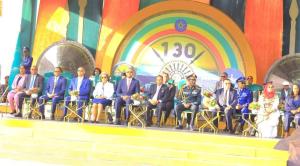
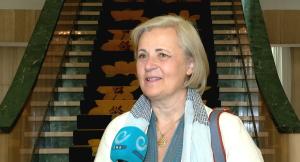
.jpg)




.jpg)


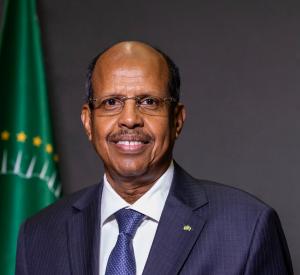
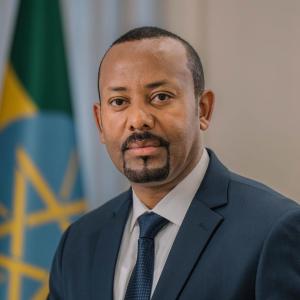


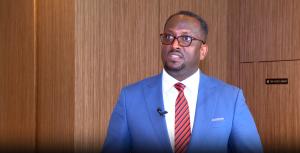
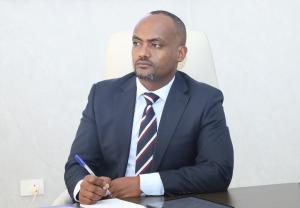
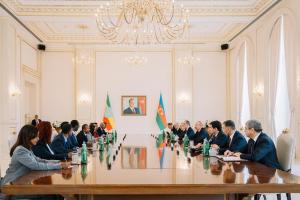
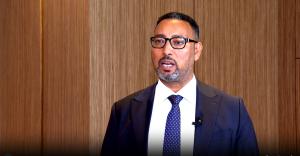
.jpg)
.jpg)
.jpg)
.jpg)
.jpg)
.jpg)
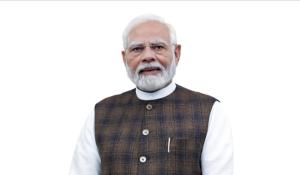





.jpg)
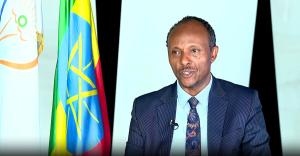
.jpg)
.jpg)

